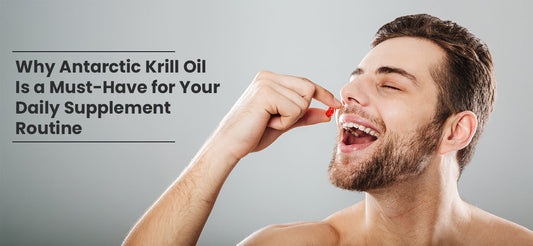In today’s health-conscious world, the importance of essential fatty acids is widely recognized. Among these, omega-3 fatty acids play a crucial role in maintaining overall health, supporting cardiovascular health, promoting brain function, and aiding in inflammation reduction. As someone committed to a plant-based nutrition lifestyle, you might feel limited in your options for obtaining essential nutrients like omega-3 fatty acids. It’s understandable to be concerned about whether plant-based sources can truly meet your needs. You’re not alone in this, many others share your commitment to both health and ethical living.
Essential fatty acids like omega-3s are vital, but how can they be sourced without relying on fish oils?
With the rise of veganism and concerns about the sustainability of fish oil, vegan omega supplements offer a compelling alternative. This article dives into the health benefits, sources, and scientific evidence supporting the efficacy of plant-based omega-3 fatty acids.
Vegan Sources of Omega-3 Fatty Acids
Plant-based omega-3 supplements primarily source these essential fatty acids from:
- Algal Oil: Algae is one of the few plant-based sources that directly provide both eicosapentaenoic acid (EPA) and docosahexaenoic acid (DHA), making it a powerful alternative to fish oil. Studies1 show that algal oil supplements can effectively increase blood levels of EPA and DHA, similar to fish oil.
- Flaxseeds: Rich in alpha-linolenic acid (ALA), flaxseeds are a popular source of omega-3 fatty acids for those following a plant-based nutrition plan. However, since ALA conversion to EPA and DHA is limited, flaxseeds alone may not provide sufficient levels of these crucial omega-3 fatty acids.
- Chia Seeds and Walnuts: Like flaxseeds, these are excellent sources of ALA but are less efficient in providing EPA and DHA. They still contribute significantly to overall omega-3 intake within a plant-based nutrition framework.
Health Benefits of Vegan Omega-3 Supplements
Vegan omega supplements offer a range of health benefits similar to their animal-based counterparts. Here’s how incorporating vegan omega-3 fatty acids into your diet can enhance your well-being:
- Cardiovascular Health:
Research indicates that omega-3 fatty acids, particularly EPA and DHA, play a crucial role in reducing the risk of heart disease. A meta-analysis by Conquer and Holub (1996)2 found that plant-based omega-3s, especially from algal oil, can significantly lower triglyceride levels and reduce the risk of heart-related issues, thereby supporting overall cardiovascular health.
- Brain Function and Cognitive Health:
DHA is a critical component of brain cell membranes and is essential for brain function. A study published in Frontiers in Aging Neuroscience (Yurko-Mauro et al., 2015)3 highlighted that DHA supplementation, including from algal sources, can improve memory and cognitive performance in older adults, making it a key player in maintaining brain function as we age.
- Inflammation Reduction:
Omega-3 fatty acids have well-documented anti-inflammatory properties, which can help manage conditions such as arthritis and other inflammation-linked metabolic diseases. A research4 conducted in 2015 indicated that EPA and DHA from plant-based sources like algae can reduce inflammation, aiding in effective inflammation reduction.
- Eye Health:
DHA is vital for retinal health. A study5 conducted to evaluate the effect of algal oil on retinal cells (T. Huang et al., 2020) found that omega-3 fatty acids can protect against age-related macular degeneration. Algal oil, as a vegan source of DHA, offers similar benefits, supporting long-term eye health.
- Pregnancy and Infant Development:
Omega-3 fatty acids are crucial during pregnancy for fetal brain and eye development. A review in the American Journal of Clinical Nutrition (Greenberg et al., 2008)6 suggests that algal DHA is a safe and effective alternative to fish oil for pregnant women, promoting healthy infant development while maintaining a commitment to plant-based nutrition.
How to Add Vegan Omega to Your Diet?
The benefits of vegan omega-3 fatty acids are clear, but how can you ensure you’re getting enough in your diet? Here are practical steps to incorporate these essential fatty acids:
- Supplementation: Vegan omega supplements, derived from algae oil, are widely available and provide a direct source of DHA and EPA. These supplements are particularly beneficial for those who do not consume sufficient ALA-rich foods and are committed to plant-based nutrition.
- Dietary Sources: Include flaxseeds, chia seeds, walnuts, and hemp seeds in your daily diet. These foods are rich in ALA and contribute to your omega-3 fatty acid intake, essential for cardiovascular health, brain function, and inflammation reduction.
- Balanced Diet: A well-balanced plant-based diet that includes a variety of foods can help meet your essential fatty acid needs. Combining supplementation with a diet rich in ALA can optimize omega-3 fatty acid levels, supporting both cardiovascular health and brain function.
Vegan omega is a powerful, plant-based solution to meeting your essential fatty acid needs. Backed by scientific research, it offers numerous health benefits, from supporting cardiovascular health to enhancing brain function and aiding in inflammation reduction. Whether you’re motivated by health, ethics, or sustainability, vegan omega provides a viable alternative to traditional fish oils. By incorporating vegan omega-3 fatty acids into your diet, you can enjoy the benefits of omega-3 fatty acids while contributing to a more sustainable and compassionate world.
References
- Lane, K., Derbyshire, E., Li, W., & Brennan, C. (2013b). Bioavailability and Potential uses of vegetarian sources of omega-3 fatty acids: A Review of the literature. Critical Reviews in Food Science and Nutrition, 54(5), 572–579. https://doi.org/10.1080/10408398.2011.596292
- Conquer, J. A., & Holub, B. J. (1996). Supplementation with an Algae Source of Docosahexaenoic Acid Increases (n-3) Fatty Acid Status and Alters Selected Risk Factors for Heart Disease in Vegetarian Subjects. Journal of Nutrition, 126(12), 3032–3039. https://doi.org/10.1093/jn/126.12.3032
- Yurko-Mauro, K., Alexander, D. D., & Van Elswyk, M. E. (2015). Docosahexaenoic Acid and Adult Memory: A Systematic Review and Meta-analysis. PLoS ONE, 10(3), e0120391. https://doi.org/10.1371/journal.pone.0120391
- Robertson, R. C., Guihéneuf, F., Bahar, B., Schmid, M., Stengel, D. B., Fitzgerald, G. F., Ross, R. P., & Stanton, C. (2015). The Anti-Inflammatory Effect of Algae-Derived Lipid Extracts on lipopolysaccharide (LPS)-Stimulated human THP-1 macrophages. Marine Drugs, 13(8), 5402–5424. https://doi.org/10.3390/md13085402
- Huang, T., Wen, Y., Ho, Y., Wang, J., Lin, K., & Tsai, R. (2020). Algae oil treatment protects retinal ganglion cells (RGCs) via ERK signaling pathway in experimental optic nerve ischemia. Marine Drugs, 18(2), 83. https://doi.org/10.3390/md18020083
- Greenberg, J. A., Bell, S. J., & Van Ausdal, W. (2008, January 1). Omega-3 fatty acid supplementation during pregnancy. PubMed Central (PMC). https://www.ncbi.nlm.nih.gov/pmc/articles/PMC2621042/






